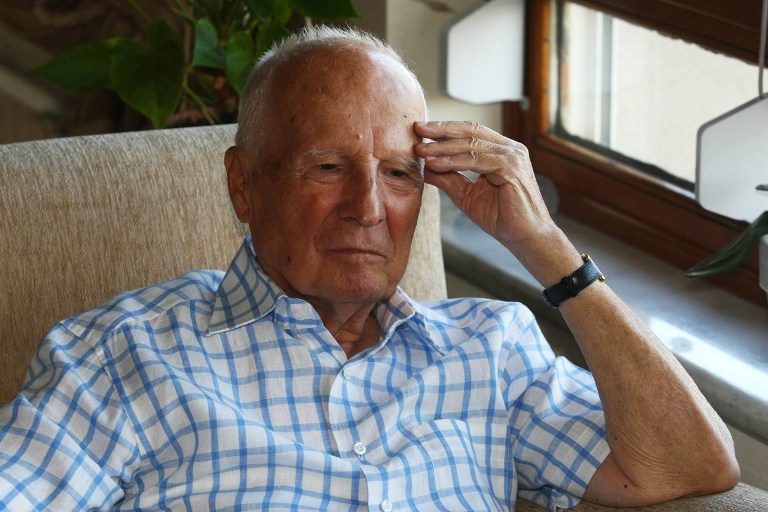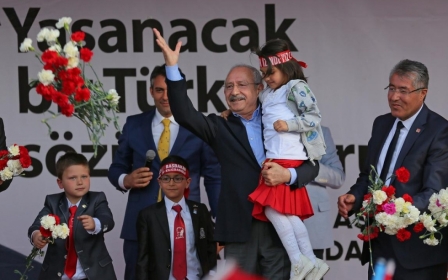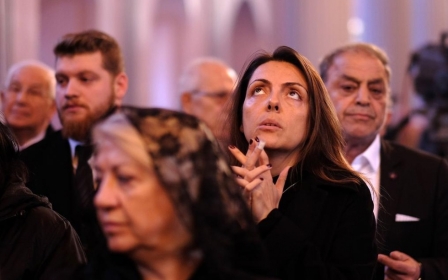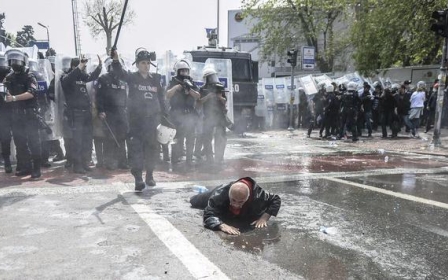Turkey coup leader Kenan Evren dies 'without remorse'

By Fulya Ozerkan
Turkish former junta leader Kenan Evren, regarded by many as a saviour of the nation but by others as a man with blood on his hands, died on Saturday aged 97.
The former president was sentenced to life in prison last June along with former air force commander Tahsin Sahinkaya, now 90, for their roles in the country's bloodiest putsch.
As head of the armed forces, Evren seized power in a pre-dawn assault on 12 September, 1980, and went on to rule for the next nine years.
Fifty people were sent to the gallows in the aftermath of the coup, dozens died from torture while in jail, and more than 600,000 people of all political stripes were arrested.
"This move was made in line with the wishes of the people and the army to eradicate the blow inflicted on democracy," Evren was quoted as saying in the days after the coup.
Evren, along with his second-in-command Sahinkaya, escaped prosecution until Ankara stripped them of their immunity in 2010 in legislation adopted exactly 30 years after the coup.
They were the only two surviving members of the junta at the time of the trial.
Evren never appeared in the dock because of his failing health but testified from his hospital bed via video link.
"If it was today, we would do the same thing and stage that coup all over again," he said in a November 2012 hearing. "I have no remorse."
Coup a 'necessary evil'
The coup was launched as Turkey was rocked by fierce clashes between left-wing and right-wing activists, and the action was at the time hailed by many as a "necessary evil" that saved the country from sinking into a state of anarchy.
After the coup, Evren came under fire from rights groups over callous comments defending the hanging of a 17-year-old convicted of killing a soldier in the unrest, with some saying he had blood on his hands.
"If you do not hang those who deserve it, they will spread like a virus," Evren reportedly said.
Evren became the seventh president of the republic after the junta introduced a new constitution that allowed him to formalise his position as head of state.
He was born in 1917 into a family of Balkan migrants in Manisa, a city near the Aegean coast, in the fading years of the Ottoman Empire.
He graduated from a military high school in Istanbul in 1938, the same year the founder of modern Turkey, Mustafa Kemal Ataturk, died.
Evren quickly climbed the ranks of the military and served in South Korea after the Korean War, becoming a general in 1964.
He was appointed armed forces chief of staff in 1978, and a few years later he issued his first warning to the government of then prime minister Suleyman Demirel, who had been spared the gallows in Turkey's first coup in 1960.
Evren opted out of public life after his retirement in 1989, moving into his coastal villa in Marmaris and spending much of his time painting by the sea.
In the 1990s, his work was snapped up by Turkish business leaders, with one company paying the equivalent of about $240,000 for one oil painting.
"I know the painting was not worth that... they did not even see it," Evren, who leaves three daughters, said in a 1993 interview.
Public and political sentiment turned against him after the Justice and Development Party (AKP) took power in 2002, clipping the wings of the once-powerful generals.
New MEE newsletter: Jerusalem Dispatch
Sign up to get the latest insights and analysis on Israel-Palestine, alongside Turkey Unpacked and other MEE newsletters
Middle East Eye delivers independent and unrivalled coverage and analysis of the Middle East, North Africa and beyond. To learn more about republishing this content and the associated fees, please fill out this form. More about MEE can be found here.




